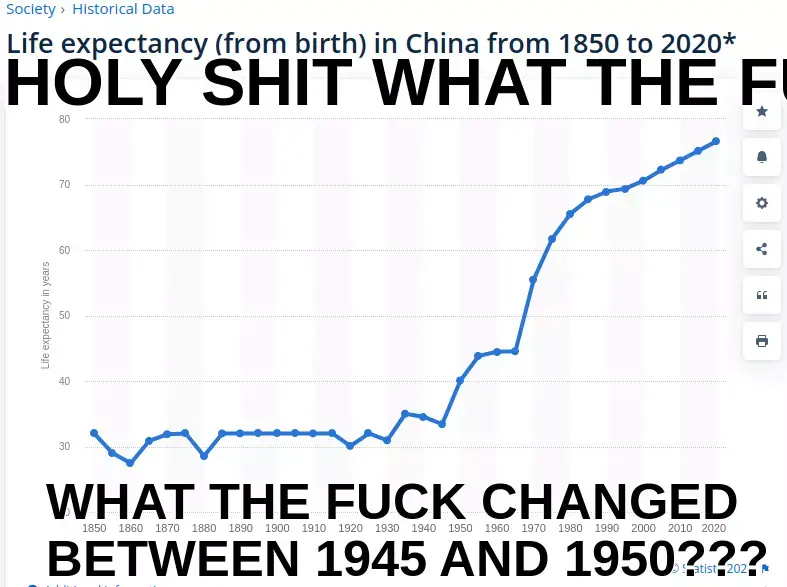







deleted by creator


Did you know he also lived in Iowa for a while?
He’s running :xi-vote:


But likely just 50 cent army.
Sorry, but I’m actually not allowed to get paid for my China posts because of a noncompete clause I signed from when George Soros hired me as a crisis actor. I’m not allowed to be a paid actor in any other conspiracy theories right now, so I’m just defending China pro-bono to keep my posting skills sharp so I can try to get on as a wumao once my contract is up.


Either way, they tend to make themselves scarce when that link is dropped on them.
This is either a bit or a masochist lol, just straight up inviting the dogpile.


The nefarious Chinese are tricking people into supporting them by checks notes improving their material conditions.
Thank God I live in America where I’ll never have to worry about the government doing that.


If you are too attached to abstract ideas of “Good,” to the point of standing on principle even if it means defeat, then you may get defeated and replaced by someone worse, and things may be much worse for everyone if you did whatever was necessary to win.
However, if you are too attached to the evil approach, then you may become too caught up in self-indulgent antihero fantasies and lose sight of what actually works. For example, no actionable information was acquired through the use of torture during the War on Terror. Movies and TV shows almost always depict it working because that self-indulgent antihero fantasy sells, but that doesn’t mean it’s true. Violating international law could also (depending on the rest of the factions in this hypothetical) cause diplomatic repercussions such as sanctions or even another faction joining the war on the other side. Evil doesn’t always get away unpunished.
Every faction, (as well as every person), has a variety of different approaches that they could apply, and what determines which of these approaches work and don’t work is the system in which they exist and their position in it. “It is not the strongest of the species that survive, nor the most intelligent, but the ones most adaptable to change.”


It’s worth noting that the act has been criticized by Malasia’s queer community as exacerbating tensions and reinforcing negative stereotypes. I don’t have a strong opinion but it’s generally best to listen to the concerns of the community you’re trying to stick up for before doing a political stunt on their behalf (I’m queer btw)


You guys have been getting paid!? The whole time?? 


Hexbear is a large, leftist instance, that just recently federated, and most of us are pro-China. We’re not bots and we’re not getting paid, but we’re not shy about our political views. That’s the reason you’re suddenly seeing a bunch more comments defending China.


doesn’t seem to tolerate basic slurs
A lot of them do! You can find the list here


You’re right, what does it matter that every Chinese person gets to live twice as long as they used to, if the process of getting there wasn’t perfect?
Your carefully researched and insightful rebuttal has convinced me. I hate massive increases in life expectancy now. Clearly, we have no choice but to abandon communism 


Famines were extremely common before the CPC came to power. Most Chinese people lived in extreme poverty, and life expectancy was less than 35, with no significant improvement under the KMT. In between Mao coming to power and his death, life expectancy in China nearly doubled. Today, average life expectancy in China has exceeded that of the US, a feat that would’ve been unimaginable back then.

It’s true that Mao made misteps (which the CPC readily admits), but those specific, dramatic events have been disproportionately elevated to obscure the more general trend, which has been drastic improvements in the lives of the people of China.
Of course, in addition to minimizing the frequency and severity of famines in pre-industrial China, your history books likely did not place the same level of blame on the British for the intentional famines which Ireland and India were subjected to, in which Britain did not only refuse to provide aid to their colonial subjects (often on the express basis that it would motivate people to work harder), but also did not cease their plundering - in both cases, food was exported out of the country while the people starved.